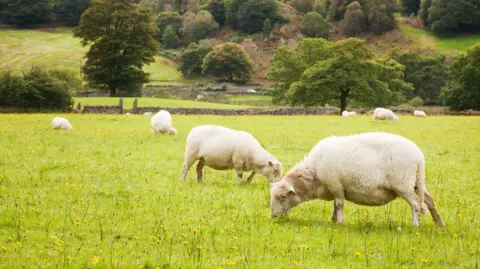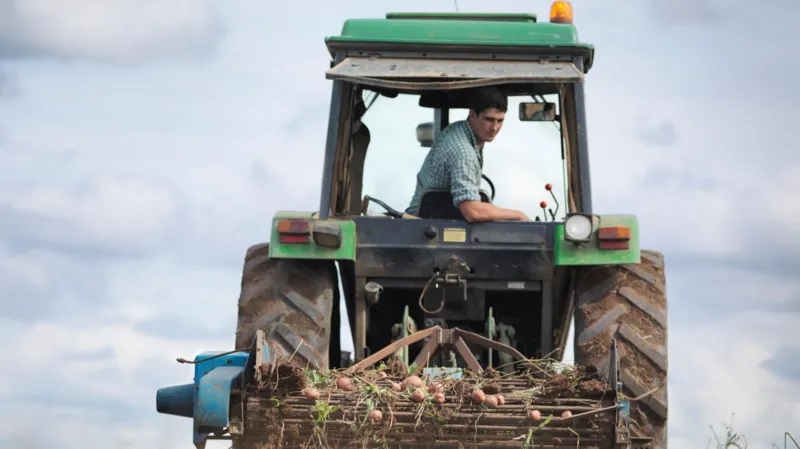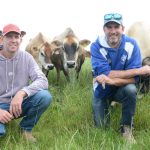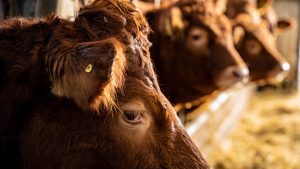
Farm incomes in Northern Ireland almost halved in 2023, new figures from the Department of Agriculture, Environment and Rural Affairs (Daera) show.
The provisional estimates indicate that total income from farming (TIFF) fell from £609m in 2022 to £341m in 2023 – a reduction of 44%.
TIFF is the return on own labour, management input and own capital invested.
Farmers bought less fertiliser and lime in 2023, but spent more on feedstuffs, which accounted for more than half the total value of gross snputs.
Across all farm types, farm business income is expected to decrease by 46% a farm from an average £51,043 in 2022-23 to £27,345 in 2023-24.
The reductions are expected mainly in cereal (-80%) and dairy farming (-70%).
But increased pig prices mean incomes from pig farms are expected to rise by 84% in 2023-24.
Higher beef prices also mean incomes from cattle and sheep in less favoured areas – a classification of land that is not as productive – and cattle and sheep in lowland farms are expected to increase by 8% and 3% respectively.
Market conditions ‘very difficult’
The agriculture and environment minister said fluctuating market conditions were not a new problem, but remained a “very difficult” issue for farmers.
Andrew Muir added that fluctuations were mainly due to price influences in world markets which are outside Daera’s control.
“Consequently, my department focuses effort on helping farmers mitigate cost and price pressures by improving their productivity and resilience, while also addressing their environmental sustainability levels,” he said.
“These are the goals of our new farm support and development programme.”
Mr Muir also said the College of Agriculture, Food and Rural Enterprise in Antrim continued to offer “relevant training and support to farmers”.
 Getty Images
Getty ImagesTotal gross output for agriculture fell to £2.87bn in 2023, almost a third of which was comprised of dairying (£892m).
The amount of milk produced and the price per litre it attracted also fell.
Intensive sectors – poultry, eggs and pig production – all saw increases in the value of their output, although production fell in the pig and egg sectors.




















